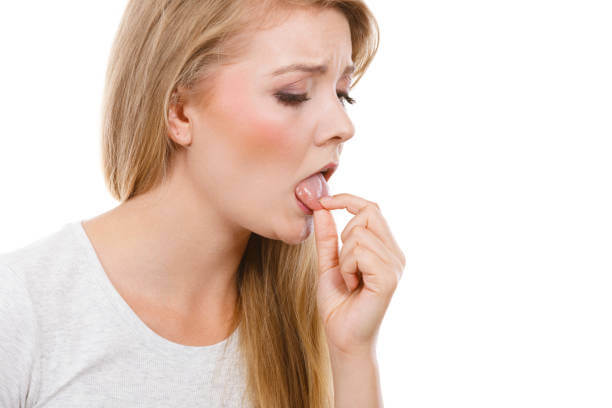Occasionally, you may experience an unpleasant bitter taste in your mouth. It’s not uncommon to experience this reaction after consuming something a couple of hours ago.
The human system is a complex interwoven network working synchronously, and slight changes to this network can disrupt the digestive system as a whole.
Common medical conditions that can interfere and cause a temporal disdainful taste in your mouth include pregnancy, dry mouth, acid reflux, menopause, etc., lifestyle changes, and personal hygiene can provide a lasting solution to the condition.
However, frequent recurrence of a bitter taste in the mouth shouldn’t be neglected but treated as a medical emergency as this might be the side effect of an underlying medical condition. Consult a specialist for proper diagnosis and treatment.
What Causes Bitter Taste in the Mouth?
A bitter taste in the mouth is not often a cause for concern; however, this experience can take a toll on your daily routine and interfere with your diet.
A couple of conditions can cause a bitter taste in your mouth, such of which include:
Dry Mouth
Saliva production in the mouth is an essential part of food digestion, as it aids in moisturizing and swallowing food molecules. When the salivary gland fails to produce sufficient saliva, it increases bacteria activities, leading to cavities infections, causing bad breath and a foul taste in the mouth.
Failure of the salivary gland to produce enough saliva is known as DRY MOUTH (xerostomia). A series of factors can cause this condition of which include age, medication, or autoimmune diseases.
Drinking more water can moisturize the mouth and inhibit bacterial activities.
Gastroesophageal Reflux Disease (GERD)
The human stomach contains gastric acid produced by the stomach lining; this acid helps break down food particles for easy digestion and absorption of nutrients by the body.
Gastrointestinal reflux disease occurs when the lower esophageal sphincter, responsible for opening and closing the esophagus, weakens and causes a free flow of stomach acid back into the esophagus.
The presence of leaked digestive enzymes in the esophagus can cause a sour or bitter taste in the mouth.
Medication
Medication prescribed for treating ailment can alter taste receptors in the tongue and brain, which can cause a bitter taste in the mouth. As stated in a medical journal published by the Canadian Family Physician, there are over 250 drugs that affect your taste receptors and cause a bitter taste in the mouth.
Medications that can cause a bitter taste in the mouth include:
- Drugs for maintaining neurological diseases such as migraines and Parkinson disease
- Antibiotics such as tetracycline, ampicillin, and trimethoprim
- Medicines to treat psychological conditions
- Medications prescribed during chemotherapy such as cyclophosphamide, and cisplatin
- A supplement containing zinc or copper
If you get an uncomfortable bitter taste from medication, you can contact your physician for a different prescription.
Poor Oral Hygiene
Lack of healthy oral hygiene is a common cause of a bitter taste in the mouth. Poor oral hygiene can cause a yeast infestation, alter taste perception and linger until the proper medication takes effect.
Hormonal Changes
Hormonal changes can also cause a bitter taste in the mouth. This condition is quite prevalent during pregnancy and menopause. The bitter taste tends to subside at the end of these phases. If symptoms persist by the end of the stage, you should seek medication attention for proper diagnosis.
Pine Nut Syndrome
Pine nuts can leave a bitter taste in the mouth for about 12 to 48 hours after consumption. Although the cause of the bitter taste in the mouth is unknown, scientists still believe that the bitter taste can be attributed to genetic factors, processing methods, or the oil’s rancidity before consumption.
Diagnosis and Treatment
Before treatment, your doctor will ask a series of questions and health status to understand the condition’s underlying cause. Your doctor may order lab work for further diagnosis.
Treatment varies depending on the factor responsible for the bitter taste in your mouth; however, general home remedies highlighted below may help relieve or prevent the condition.
- Practice good oral hygiene by brushing twice daily
- Chew sugar-free gums to bolster saliva production
- Drink plenty of water to stay hydrated and inhibit bacterial invasion
- Consult your doctor for a changed prescription if your medication Is responsible for the bitter taste
- Avoid food that might trigger acid reflux
If all home remedies don’t suffice and the bitter taste lingers, you might need to visit a specialist.
While the condition isn’t a cause for concern, a persistent bitter taste in your mouth can make you uncomfortable and interfere with your social life. Embark on a treatment course after proper diagnosis by your doctor.


